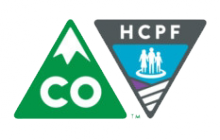
The Colorado Department of Health Care Policy and Financing, through its Medicaid program, is responsible for collection of outstanding liens for the state. This department is in charge of disbursement of state funds to indigent citizens in need of medical benefits. Oftentimes, a claimant will pursue medical benefits through the department if they qualify. This may be true even when a claimant has a current workers’ compensation claim on file with the Division of Labor. Qualification for a particular program, through the state funded Medicaid partnerships, involves several criteria. If a citizen qualifies, benefits may be paid regardless of the current status of a workers’ compensation claim. The Medicaid department will assert its lien, (referred to as a “recovery right”), against the claimant and the workers’ compensation claim.
A lien usually arises at one of two points in the workers’ compensation litigation. The first such instance occurs when a claim is denied by the carrier and the claimant chooses to pursue medical benefits through the applicable Medicaid programs. These claims usually involve substantial forms of medical treatment, (i.e. surgeries), in which time is of the essence and a claimant cannot wait for resolution of compensability and causation issues in their workers’ compensation claims. The claimant may choose to obtain the surgery through the authorized treating physicians or through their own personal care physician. Should the claim be found compensable by an ALJ, it is important to distinguish between the benefits provided and through which physicians the claimant received treatment. Regardless of the legal arguments to be made, Medicaid will assert its right of recovery against the benefits paid and will await resolution of the claim before doing so.
The second such instance occurs when a claimant has received medical benefits through the state funded Medicaid program and the treating physician finds a particular treatment to either be related to the claim, (or not related to the claim). The benefits are disputed through the workers’ compensation process, and the claimant obtains treatment without waiting for resolution of the workers’ compensation issues. In this example, the opinions from the treating physicians will be important in determining liability for the outstanding lien. If a treating physician deems the medical benefits to be related to the claim, and the claim is resolved through a settlement or other means, the carrier will be liable for payment of the lien. Recovery of the lien cannot be shifted by the parties in the workers’ compensation claim. However, if the treating physicians deemed the treatment to be non-work related, the carrier may be able to dismiss any causes of action by providing the opinions of the physicians to the proper investigative authorities within the department.
Legislative Authority
Colorado’s Medicaid programs derive their authority from one main portion of section 25.5 of the Department of Health Care Policy and Financing Act. Section 25.5-4-301(5)(a), C.R.S. states, “When the state department has furnished medical assistance to or on behalf of a recipient pursuant to the provisions of this article, and articles 5 and 6 of this title, for which a third party is liable, the state department shall have an automatic statutory lien for all such medical assistance. The state department’s lien shall be against any judgment, award, or settlement in a suit or claim against such third party and shall be in an amount that shall be the fullest extent allowed by federal law as applicable in this state, but not to exceed the amount of the medical assistance provided.”
Additionally, section 25.5-4-301, C.R.S. states, “When the applicant or recipient, or his or her guardian, executor, administrator, or other appropriate representative, brings an action or asserts a claim against any third party, such person shall give to the state department written notice of the action or claim by personal service or certified mail within fifteen days after filing the action or asserting the claim. Failure to comply with this subsection (6) shall make the recipient, legal guardian, executor, administrator, attorney, or other representative liable for the entire amount of medical assistance furnished to or on behalf of the recipient for the injuries that gave rise to the action or claim. The state department may, after thirty days’ written notice to such person, enforce its rights under subsection (5) of this section and this subsection (6) in the district court of the city and county of Denver; except that liability of a person other than the recipient shall exist only if such person had knowledge that the recipient had received medical assistance or if excusable neglect is found by the court. The court shall award the state department its costs and attorney fees incurred in the prosecution of any such action.” (Emphasis added)
Lastly, section 25.5-4-301(5)(b) states, “No judgment, award, or settlement in any action or claim by a recipient to recover damages for injuries, where the state department has a lien, shall be satisfied without first satisfying the state department’s lien. Failure by any party to the judgment, award, or settlement to comply with this section shall make each such party liable for the full amount of medical assistance furnished to or on behalf of the recipient for the injuries that are the subject of the judgment, award, or settlement.”
These three portions of the statute are important to remember prior to resolving any workers’ compensation claim. Specifically, if the carrier or the insured has any knowledge that Medicaid paid for any potential treatment in connection with the workers’ compensation claim, the carrier must investigate and contact the Department of Health Care Policy and Financing to inquire about any potential liens. The duty to investigate is not on Medicaid or the State of Colorado, but rather the duty rests with each party to the workers’ compensation claim. Failure to notify Medicaid prior to resolution of the workers’ compensation claims will cause the outstanding balance to become due and owing in full unless a separate argument can be made regarding the medical benefits provided to the claimant recipient. This is the case regardless of any language placed into any agreements, stipulations, settlements, or the like that are agreed upon between the parties.
Recommendations
The carrier and the Employer, (either through counsel or individually), should always investigate whether any Medicaid liens exist at the state level. Outstanding Medicaid liens differ from other liens due to the duty imposed on the carrier through statute. Failure to investigate any outstanding liens could lead to potential reopening of claims long after they have been resolved. Investigation could happen in a number of ways. The simplest way involves contacting the department in writing and providing the identifying information of the claimant to search for any liens. The department will usually respond within a few days notifying the carrier of any issues. However, this manner may be problematic for adjusters especially in light of the volume of claims at any given time. If counsel is assigned, the inquiry can be made by email or through general discovery pending on a litigated claim. Discovery responses from the claimant can reveal receipt of any benefits through Medicaid or otherwise.
For more information about specific Medicaid issues on any workers’ compensation claims and recovery of liens, please feel free to contact us. References about the Colorado Medicaid programs can be found here.





